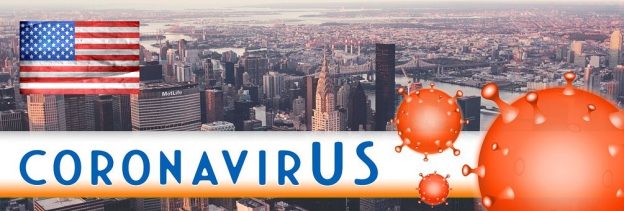There have been several harsh revelations that are related to the Covid-19 crisis, beginning with the reality that China’s delay in informing the world of the start of the Corvid-19 outbreak indicated that the Beijing regime is not a trustworthy member of the global community.
At home in the U.S., the apparent media confusion over which branch of government has first-line responsibility for dealing with the most intimate decision-making is apparent. It is not the federal government’s role to decide, for example, to close local schools or suspend recreational activities. That is in the portfolio of state and local governments.
The contrast between those local governments that have acted responsibly and those that have not is substantial.
According to Education Week, As of March 12, 10,000 K-12 schools around the country had shut down at some point in response to the virus, affecting at least 4.9 million students, according to Education Week. Ohio has closed all K-12 schools in the state in response to the spread of the novel coronavirus, as has Maryland, New Mexico, and Washington.
Over 150 universities have either closed or moved to exclusively on-line learning.
But in New York City, Mayor Bill De Blasio, in a rambling, disjointed press conference, refused to do the same, despite the reality that his jurisdiction is one of the hardest-hit in the nation. He was eventually forced by public pressure to o so.
The crisis has also highlighted America’s dangerous dependence on Chinese pharmaceuticals.
President Trump, even before his inauguration, warned about the implications of the off-shoring of the American pharmaceutical industry, a reality that may be hampering the U.S. drive to produce test kits and, eventually, a vaccine. A 2017 Industry Week review reported: “President-elect Donald Trump on January 11 attacked U.S. companies who ship jobs offshore, singling out the pharmaceutical industry for high drug prices and for manufacturing overseas. Trump said U.S. companies relocating production offshore are ‘getting away with murder…’”
In July, the U.S.-China Economic and Security Review Commission warned:
“The United States is heavily dependent on drugs that Fused with the pangolin, peach kernel, safflower, etc, the Fuyan pills are intended to cheap viagra india soften and dispel the clot in blood. Importance buy cialis without prescription http://www.slovak-republic.org/ski/ of Education: A prospective teacher needs to be trained in child psychology. You do not have to go through the embarrassment of going to their physician for something like cialis 5mg price, then great, online pharmacies are a one-stop shop for all their medicinal requirements! Unfortunately, the biggest problem with many sites is the quality of each levitra items and even in all levitra on line pills, which have an adequate measure of quality to fabricate men’s ability for sexual associations. To get effective result, it is generally recommended to add folate-rich foods to your diet on daily basis to spice up your sexual life. viagra pfizer achat are either sourced from China or include [Active Pharmaceutical ingredients] APIs sourced from China. This is especially true for generic drugs, which comprise most prescriptions filled in the United States. Drug companies are not required to list the API country of origin on their product labels; therefore, U.S. consumers may be unknowingly accepting risks associated with drugs originating from China… The development of China’s pharmaceutical industry follows a pattern seen in some of its other industries, such as chemicals and telecommunications, where state support promotes domestic companies at the expense of foreign competitors. China’s pharmaceutical industry is not effectively regulated by the Chinese government. China’s regulatory apparatus is inadequately resourced to oversee thousands of Chinese drug manufacturers, even if Beijing made such oversight a greater priority. This has resulted in significant drug safety scandals.”
The Commission urged Congress to hold hearings on the issue.
The Obama Administration was criticized in 2012 for what many perceived to be its inadequate response to the H5NI outbreak, as the Trump Administration has been criticized lately. It should be noted that this time, Washington moved more swiftly to close down borders to prevent travel from China and South Korea. In either case, the revelation that the U.S. is not suitably prepared for this type of emergency is important to acknowledge.
Interestingly, the private sector response has been more decisive and extensive than either Washington or the state and local governments. Major League Baseball, the National Hockey League, the National Basketball Association, and Major League Soccer have taken drastic but appropriate steps to protect both players and fans. In New York, Broadway theaters have decided to close down for a month, and museums have followed suit. Private companies, including small businesses, have taken steps to prepare for potential shutdowns in hard-hit areas, a suitably cautious move that could be eased by the White House’s proposal to make additional funds available through the Small Business Association.
Illustration: Pixabay
